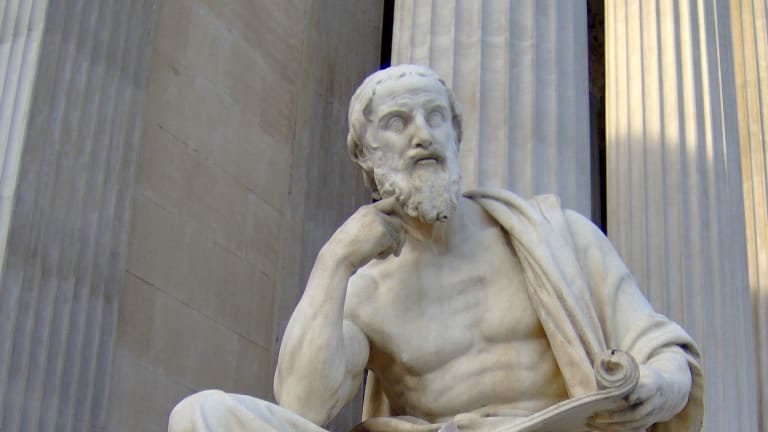"Docendo Discimus"
The historian, Herodotus, records in The Histories his observations of ancient Persia:
"And they honour of all most after themselves those nations which dwell nearest to them, and next those which dwell next nearest, and so they go on giving honour in proportion to distance; and they hold least in honour those who dwell furthest off from themselves, esteeming themselves to be by far the best of all the human race on every point, and thinking that others possess merit according to the proportion which is here stated and that those who dwell furthest from themselves are the worst."
The History of Herodotus, vol. 1 (pgs. 115-116), trans. by G.C. Macaulay
The same could be said of the American chronological perspective: we don't think much of what's not brand new and near, and we think even less of that which is simply old and historically far away. Much like the ancient Persians, we in the here-and-now esteem ourselves to be the pinnacle of history, the breadth of which we pridefully evaluate by our present existence rather than vice versa. Sadly, we do this especially with education, to our - and our children's - peril.
Some of us, however, don't want to do this anymore. We've lived long enough to learn that the past is not always suspect, while the present and future are not always our only hope. King Solomon's words echo in our ears - "there is nothing new under the sun" - and we're to the point (perhaps because we have children of our own) where listening to some far distant yet relevant voices seem worth considering at least alongside - if not in place of - those today with which we do not resonate.
Yet which of us knows what any of this should mean, particularly when the majority of us were not educated as part of what in recent years has been called "the classical Christian education movement"? Who are we to pretend that we actually read (present tense) philosophers like Plato or Aristotle, let alone have a clue as to why what they wrote matters? Perhaps most practically, how do we keep ours kids' noses to the grindstone of Latin (that supposed "dead language") when most of can't even remember how to parse a sentence in English? Who do we think we are? And how do we shore up our own inadequacies to overcome them enough to offer our children something better?
The philosopher Seneca (c. 4 BC-65 AD) offers us his counsel: "Docendo discimus." Translation: "By teaching, we learn." As we seek to provide our children with a classical Christian education, we hope to gain that which we did not experience in our own. Granted, it is probably more difficult now at our current stages of life due to slipping memories, full-time jobs, and possible mid-life plateaus, but it is not impossible, nor do we have to do it alone.




